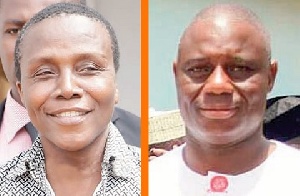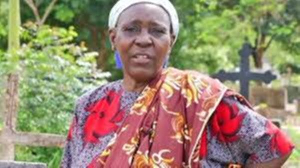Ghana risks missing the Sustainable Development Goals (SDGs) targets if she fails to bridge the developmental gap between the north and the south, Mr. Bismark Adongo Ayorogo has said.
Mr Avorogo, who the Executive Secretary of the Coalition of the Savannah Accelerated Development Authority (SADA) Zone Civil Society Organizations (CSOs), said this at various meetings with leadership of Parliament, Mr Oppong Fosu, the Minister of State in charge of Development Authorities, the leadership of the New Patriotic Party, Mr Albert Abongo, the Upper East Regional Minister.
The SADA Zone CSOs are made up of Chiefs and Representatives of Civil Society Organizations drawn from the Volta, Brong Ahafo, Northern, Upper East and Upper West Regions which form parts of the Northern Savannah Ecological Zone.
Mr Ayorogo said one of the major goals of the SDGs was to address extreme poverty adding that research had proven beyond reasonable doubt that the Northern Ecological Zones were poverty endemic.
Whilst commending Government for introducing SADA and undertaking several initiatives to create more viable opportunities for the areas, he said there is the need for Government to be more proactive by ensuring that SADA got more resources to implement its programmes and policies.
He said Ghana would have been a middle income country and not a lower middle income country if the disparities between the North and the South were addressed and cited for instance that whilst Section 18 of the SADA Act 805 of 2010 states that the sources of funds of the Authority include moneys appropriated for the Authority by Parliament and the levies on non-petroleum imports as may be approved by Parliament; the 2013 and 2014 budgetary allocations made to SADA were not disbursed.
“There was no budgetary allocation to SADA for capital projects in the 2015 and 2016 Budget Statements and Economic Policies of the Government. Five years after the passage of the law there has not been any levy on non-petroleum imports to fund SADA”, he said.
The group in a petition read by one of its leading members, Mr Milton Aberinga, demanded that the government should make a minimum allocation of 200 million Ghana cedis to SADA in its 2016 Supplementary Budget Statement to Parliament to revitalize the Authority.
It said there is the need for Government to facilitate the passage of a Legislative Instrument (LI) to give greater impetus to the operations of the Authority, government’s compliance of ACT 805, the need for government to retrieve all monies wrongly paid to individuals and companies who failed to deliver on their promises, prosecute people whose actions and inactions contributed to causing financial loss to the authority and insulate SADA from partisan and political interference.
Responding to the Coalition’s concern on budgetary allocations to SADA, the Majority Leader, Mr Alban Bagbin Sumana, said Parliament had raised similar concerns before the Executive.
He said budget preparation and appropriation of resources was the sole responsibility of the Executive arm of Government with Parliament either approving or disapproving it and advised the group to direct the issue of budgetary allocation to SADA to the Executive.
The Coalition was further assured that once there is an allocation, Parliament under its current leadership, driven by the shared concerns, would not hesitate to give the needed approval.
On the Coalition’s demand for a Legislative Instructive ( LI) for the SADA ACT, the Majority leader explained that LIs were not generated by parliament and said SADA had to initiate the process and develop it before sending it to parliament through the Executive for approval.
Business News of Thursday, 31 March 2016
Source: GNA
















